
There are cinematic moments that shine
in my memory. Many of those moments include works from the brilliant
David Cronenberg. I remember the first time I saw THE BROOD, the first
time I saw THE FLY and especially NAKED LUNCH. Many of which I have
seen several times. As a genre director he goes above and beyond the
call of duty by creating thought-provoking and striking images of horror
drenched in very real character. And recently, he has made a couple of
amazing films that are earning him even more critical success. With A
HISTORY OF VIOLENCE and his latest, EASTERN PROMISES, he has made two
strikingly original and powerful films that continue to prove he is one of
the most talented filmmakers today.
I recently got the chance to talk to
him one on one about his recent work and his latest leading man, Viggo
Mortensen who gives a wonderfully complex performance along side Naomi Watts
in EASTERN PROMISES. Not surprisingly, I found David to be a very
complex individual himself. He is open and honest about his work and
he also happens to be a very nice guy. If you are not familiar with
his earlier work or possibly his latest, you are missing out on a very
intriguing artist. Seriously, do yourself a favor and go see his
latest and possibly check out the uber-creepy THE BROOD. Just to see
the road he has traveled in his career. Ladies and gentleman, I give
you… David Cronenberg.
David Cronenberg

How did you get involved with a
project about the Russian mafia (EASTERN PROMISES)?
Well, the most straight forward kind of
way, my agent sent me the script. It had been languishing at BBC Films
for awhile and I read it. I really thought the writing was terrific
and the story was really intriguing. And the whole question of the
Russian mob in London was really quite sensual and complex and fascinating.
Because I think what’s happening in Russia these days is really quite
interesting, since the fall of Communism. So it had cultural and
political and other overtones as well as being a good mobster story.
So that’s pretty much how it started.
I know that you worked with the
writer and the script. How much did you add or change……?
Oh, a lot, a huge amount. It was
a first draft and you know, normally a writer doesn’t get a chance to start
evolving the script until a director is involved because most producers or
studios don’t really want to be in charge of doing that, they want a
director involved so they know that the work is going to be very specific
and useful. And so the writer, Steve Knight was very excited to sort
of, get another crack at. It was just a first draft as I say. We
changed everything, well, we changed a lot, let’s say. The ending
was different. Some characters were lost and other characters
appeared. So it was quite a lot.

How difficult was it shooting in
London and working with so many different cultures?
Well, it’s all… it is difficult but
fun. I mean that’s part of the fun of it is to see if you can make
that work. And also working with actors from different countries and
having them spiel like they come from one country. So we have Viggo
[Mortensen], an American. We have Vincent Cassel, a Frenchman.
Armin Mueller-Stahl, a German and [Jerzy] Skolimowsky’s Polish. And
then to get them to all be doing a Russian accent when they all speak
English and to have them speak good Russian that will hold up when the
film’s shown in Russia. Which it apparently does, it holds up very
well. That was quite a challenge. It’s a lot of fun though.
It helps when you have brilliant actors, and I was very careful in my
casting to make sure that I had actors who had already demonstrated that
they had very good fluency with language, that they could do other
languages, and do accents. Because you can sometimes have a brilliant
actor but he’ll do a really horrible accent when he has to do, let’s
say, an Italian accent, you know. It takes a musical ear. It
almost needs the ear of a musician, which for example, Viggo is, to do a
proper accent.
But the shooting in London part
wasn’t difficult, I mean, we had a wonderful crew. And aside from
the traffic everybody has to deal with there, it was very smooth sailing.
You know, I had shots, three weeks there for my film SPIDER, so it wasn’t
completely the first time in London.
You mention Viggo, obviously, second
time working with him. How did you discover him for A HISTORY OF VIOLENCE?
Well I’d been seeing him for years in
many, many movies. And I’d always thought that he was a very
interesting actor. He’s the kind of actor I like, which is to say
he’s got the presence and the charisma of a leading man. But
he has the subtly and the ability to disappear into his role that you get
with a good character actor. And I love that combination, I mean I
think I found that same with Jeremy Irons and Ralph Fiennes for example.
So, he’s a real actor, and of course THE LORD OF THE RINGS made him a star
so… you need of course a certain level of stardom to support a big,
relatively big budget, relative to me anyway. So that’s basically
it, as I said, I had been seeing him for many, many years in many movies.
What I like about Viggo is that he
is fearless and a lot of American actors won’t do the work that he does.
He doesn’t mind getting down and dirty.
That’s absolutely true. Of
course we talk about the naked fight scene [in EASTERN PROMISES], even more
is the sort of the subtly that he will bring. He doesn’t feel like
he has to chew up the scenery and go over the top in order to get noticed or
anything like that. You know, if a characters is really controlled and
inward as this character of Nikolai is, Viggo’s not afraid to play that,
you know. His fearlessness goes in many directions.

Was it interesting to bring him in
this time? Because obviously with A HISTORY OF VIOLENCE, he in
essence, played two characters. And with this one, you bring even
another dimension with him.
Yeah, what he can do is bring in many,
you know, a character whose got many, many layers that you can feel.
And even though you don’t really get a sense of his background in terms of
information delivered in the movie, you ultimately… he’s able to deliver
a character that has many, many layers and depths that some of them you
glimpse and some of them you don’t. But you get a feeling of them
being there, which is necessary for you to feel that a character on-screen
is real. An actual, complex, well-rounded person, just like you would
meet in your own life. It’s actually a very hard thing to do
on-screen. It’s much easier to play the sort of, the obvious beats
of a character, you know, and just sort of give you the shorthand. But
to play the complexity is quite difficult.
I agree. Now, one of the
things I find fascinating about your career is how you started off more or
less as a horror genre director from which you’ve grown a lot. What
have you learned throughout the years, starting off with films like RABID
and THE BROOD to this?
Well, I never thought of myself as a
horror filmmaker you see. It’s true that my first films were sort of
horror/sci-fi, and they were genre pictures and that was exactly what I
wanted to do. It wasn’t as though I calculated that was the best way
to get into the film business or anything, but it turns out that it was.
But I didn’t even know that at the time, it was just, that’s what came
out of the typewriter when I started to write those scripts was that.
But at the same time I was always very interested in the actors, very
interested in subtly of dialogue and complexity. And you can do that
within the genre, I mean after all, A HISTORY OF VIOLENCE and EASTERN
PROMISES are also genre pictures. You know, they have their
conventions that people expect, and then they also expect you, if you’re a
good filmmaker to kind of fool them and subvert the genre, sort of go off in
a way that they hadn’t expected. You don’t want to, even if
you’re delivering a good horror film, you don’t want to be totally
predictable or you’ll be boring. So I think really that all that I’ve
been doing throughout the years is developing my craft, you know, in terms
of characters and actors and all the things that you do. The lighting,
production design, editing rhythms and all that. So you just hope that
you’re getting more mature and better at it rather than going downhill.
So, to me it’s all just been a very natural evolution. It hasn’t
been a surprise to me, let’s put it that way.

With your recent films achieving
such critical success, was there a shift when you saw the way critics looked
at your work more respectfully?
I think it was as long ago as THE DEAD
ZONE in fact, you know. Because the first films were extreme horror
films, SHIVERS, RABID, THE BROOD and VIDEODROME. But THE DEAD ZONE,
which was pretty mainstream, I mean, based on a best-selling Stephen King
novel. Yeah, it’s a genre picture but suddenly I was working with a
lot of American actors who were more recognizable, I suppose, to American
audiences than actors I had been using earlier, who were mostly British and
Canadian. And you could see that the acting was really good and they
could see that there was a lot of emotion, you know, and they also were
responding to the fact that it wasn’t particularly bloody or gory or
anything like that. Ironically enough though, a movie that I made has
won an Oscar, but it was my most extreme horror movie which is THE FLY you
know [Laughing]. We won an Oscar for special effects make-up.
I remember that.
Yeah. But also, as time went on,
movies like DEAD RINGERS, I mean people could see that Jeremy Irons was
brilliant in that and that also is like, twenty-years ago. So it’s
been quite awhile that it’s been acknowledged that my work with actors was
sort of, beyond what you normally expect from genre pictures.
Well, I think, even working with
Samantha Eggar [in THE BROOD] and some of the others, you always brought out
the best.
Yeah. And Oliver Reed, he’s in
that movie and he was not an easy actor to work with for a lot of people but
he and I got along very well. He was a guy who didn’t suffer fools
gladly you know, if he felt a director was incompetent, he would give him a
really hard time. And we had a great time you know. And it was
because we were taking the acting seriously, we weren’t just worrying
about the effects. Which is of course what would happen with a lot of
young directors doing a horror film, he’s obsessed with trying to get the
effects right and he doesn’t pay any attention to the actors. And
one thing that actors really don’t like is when you don’t pay attention
to them [Laughing]. And they’re right.
I agree, it is sometimes a case of
lets get the splatter and forget about the development.
Sure, and to that extent too, that
there’s not enough attention paid to casting. Making sure that you
get really interesting, good actors. Not necessarily stars but
ones who will bring something interesting to the role rather than just doing
it by the numbers.

You seem to find yourself examining
the dark side of human nature often, what attracts you to that place?
Well I’m not only attracted to that
but I mean, I am a dramatist you know. As George Bernard Shaw once
said, “conflict is the essence of drama”. You are a dramatist, you
are looking for drama, you’re looking for things that will illuminate what
human nature is like, what it’s like to be a human being at this
particular time that you’re practicing your art. And imagine the
opposite, imagine you’re making a movie where everybody’s happy and nice
and everything is good [Laughing]. That’s not much of a movie.
It’s not much of a play and it’s not even much of a poem. So I
think it’s just natural for dramatists to go for intensity, for unusual
aspects of human nature that from which conflict arises because you’re
looking for that. To me it’s just natural. I mean, I’’m
not, as a person, I’m really rather laid back and sweet and upbeat… but
I do notice those other aspects of human nature, including those in myself.
And perhaps because they’re more hidden, as an artist you want to reveal
what is hidden. I think that’s a natural impulse rather than reveal
what everybody already knows. There’s no revelation at all there.
So for an artist that would not be very interesting. I mean, even
artists who reveal the unusual underpinnings of everyday, mundane life, you
can do that too, like Harold Pinter. Even there you get into some
darkness.
Well thank you so much David, it was
really a pleasure talking to you.
Well thank you, good for me too.
Let me know what you think. Send
questions and/or comments to [email protected].






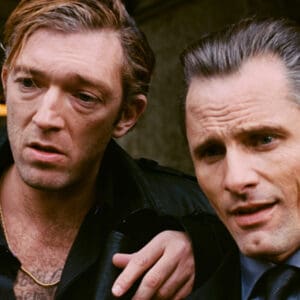
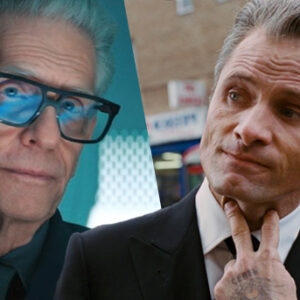
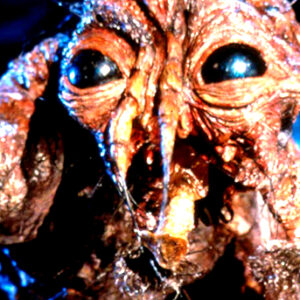
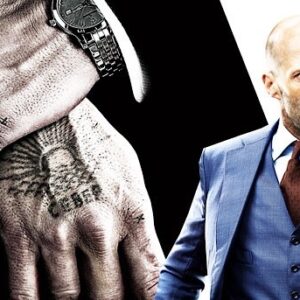

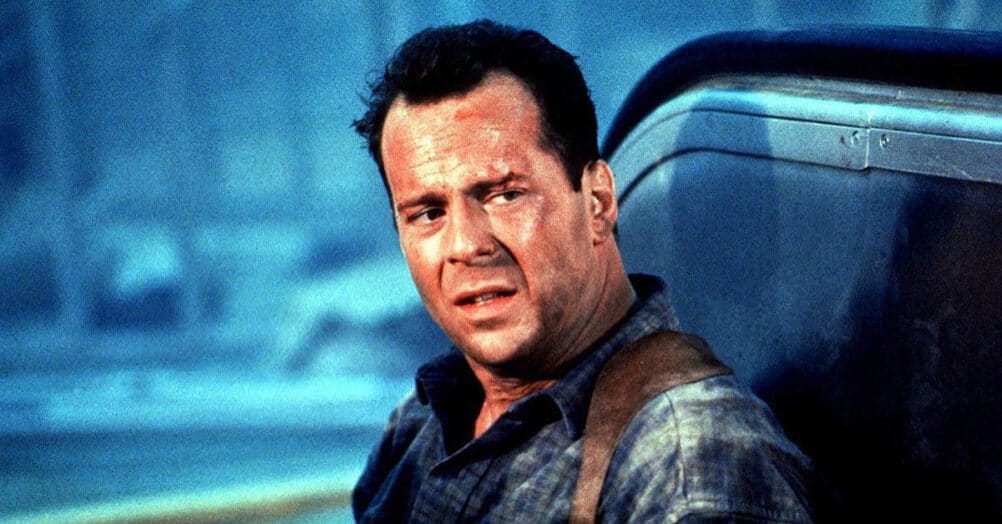




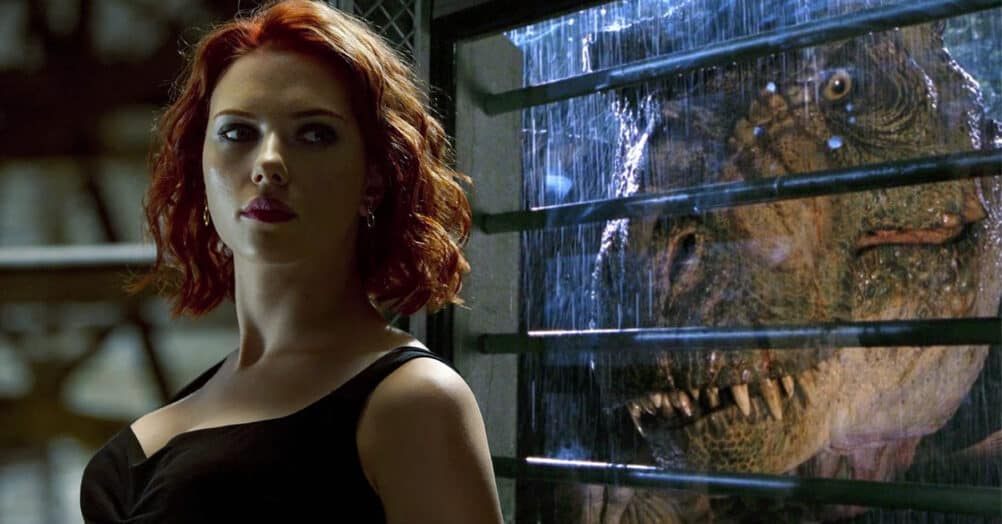



Follow the JOBLO MOVIE NETWORK
Follow us on YOUTUBE
Follow ARROW IN THE HEAD
Follow AITH on YOUTUBE